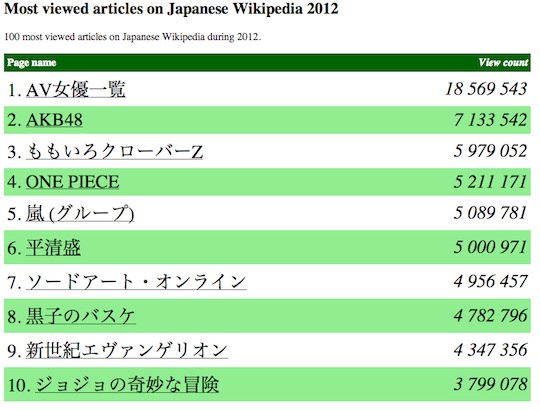40% of Japanese singles do not want romantic partner
Around 40% of Japanese singles do not want romantic partner. That’s according to a dubious government survey, published this week and picked up by the media.
It refers to single Japanese people in their twenties and thirties.

Apparently they find relationships “bothersome”.
The survey, conducted by the Cabinet Office on the Internet and by mail between last December and January, covered 7,000 people aged 20 to 39. Valid responses were received from 37.8 percent.
Of the valid respondents, 37.6 percent said they don’t want a romantic partner, while 60.8 percent voiced interest in such a relationship.
The figures were reported in an annual government white paper discussing measures to combat the low birthrate.
Of the total, 28.8 percent said they are unmarried and are not in romantic relationships. Of them, 39.1 percent of women and 36.2 percent of men said they do not want a romantic partner.
What did make sense was that low-income earners are less inclined to want to pursue romance. After all, relationships cost money in dates, gifts and so on.

The most popular reason given for why they were disinterested in relationshops, 46.2% said it was because relationships were “bothersome”. This was the most popular reason.
This was followed by 45.1 percent who said they wanted to prioritize hobbies and 32.9 percent who prioritized their work and studies ahead of romantic relationships.
The white paper also pointed out that the proportion of people who have never married by the age of 50 is increasing.
To deal with the low birthrate, the government has vowed to provide support for all stages of individuals lives, ranging from marriage, pregnancy and delivery to child rearing, the white paper said.
By coincidence, the Financial Times recently spoke to otaku art uber-proprietor Takashi Murakami and tried to suggest to the business giant that Japan’s sexlessness was due to people like him pushing otaku tropes on unsuspecting men.
Today, otaku culture is wildly popular with teenagers around the world, he says with a hint of pride. Is that such a good thing, I ask? Aren’t its images — sometimes cute and infantile, sometimes suffused with graphic sex and violence — a reflection of the stunted Japanese society, stuck in adolescence, that he has often bemoaned? And wouldn’t Japanese men be better off leaving the security of their bedrooms and dealing with real issues, including real women? If nothing else, I suggest, treating women as equal partners, rather than objects of out-of-reach fantasy, might help improve the country’s famously low fertility rate.
Naturally, Murakami responds to this with a flat-out denial.
Otaku culture… has the virtue of being authentically Japanese, not some imitation of revered western culture. And riajuu people, he adds, referring to “real” people with fulfilling lives in the real world, are looked down on by otaku. “We are becoming sexless because we have evolved,” he says approvingly, when I ask him why Japanese spend so much time perusing images of sex and so little — if surveys are to be believed — actually having it.
So it’s evolution, then. Nothing to worry about.
Well, Murakami would say that: he’s made a fortune from this shtick.
Whether it’s riajuu or otaku — either way, if government surveys are to be believed a worrying 40% of them aren’t interested in relationships!















